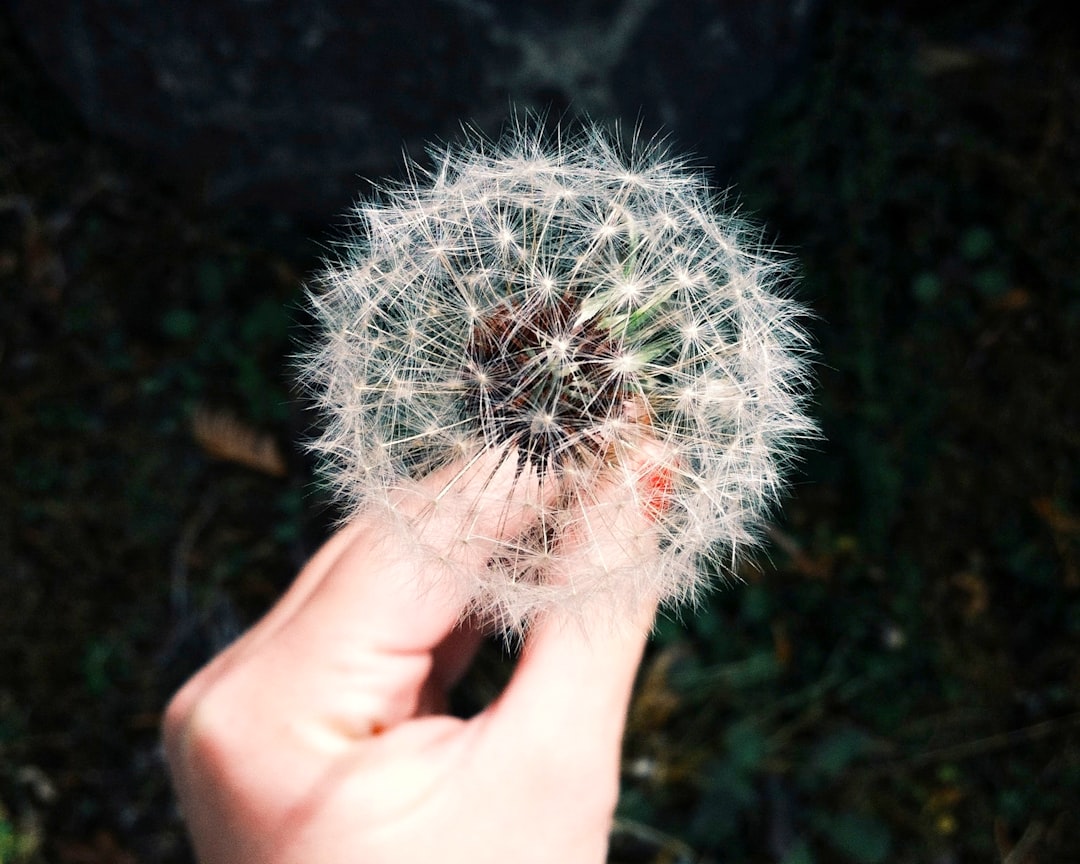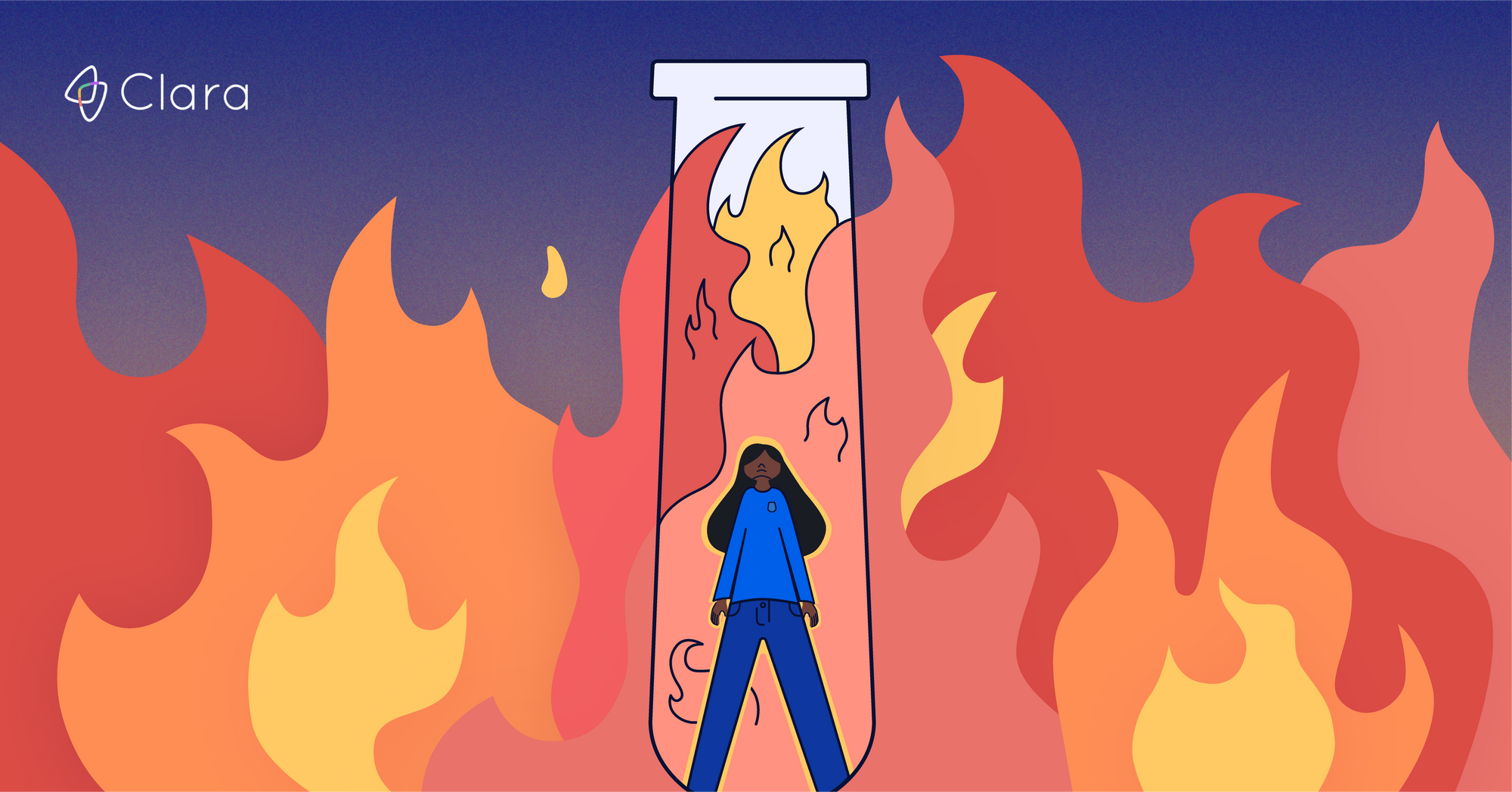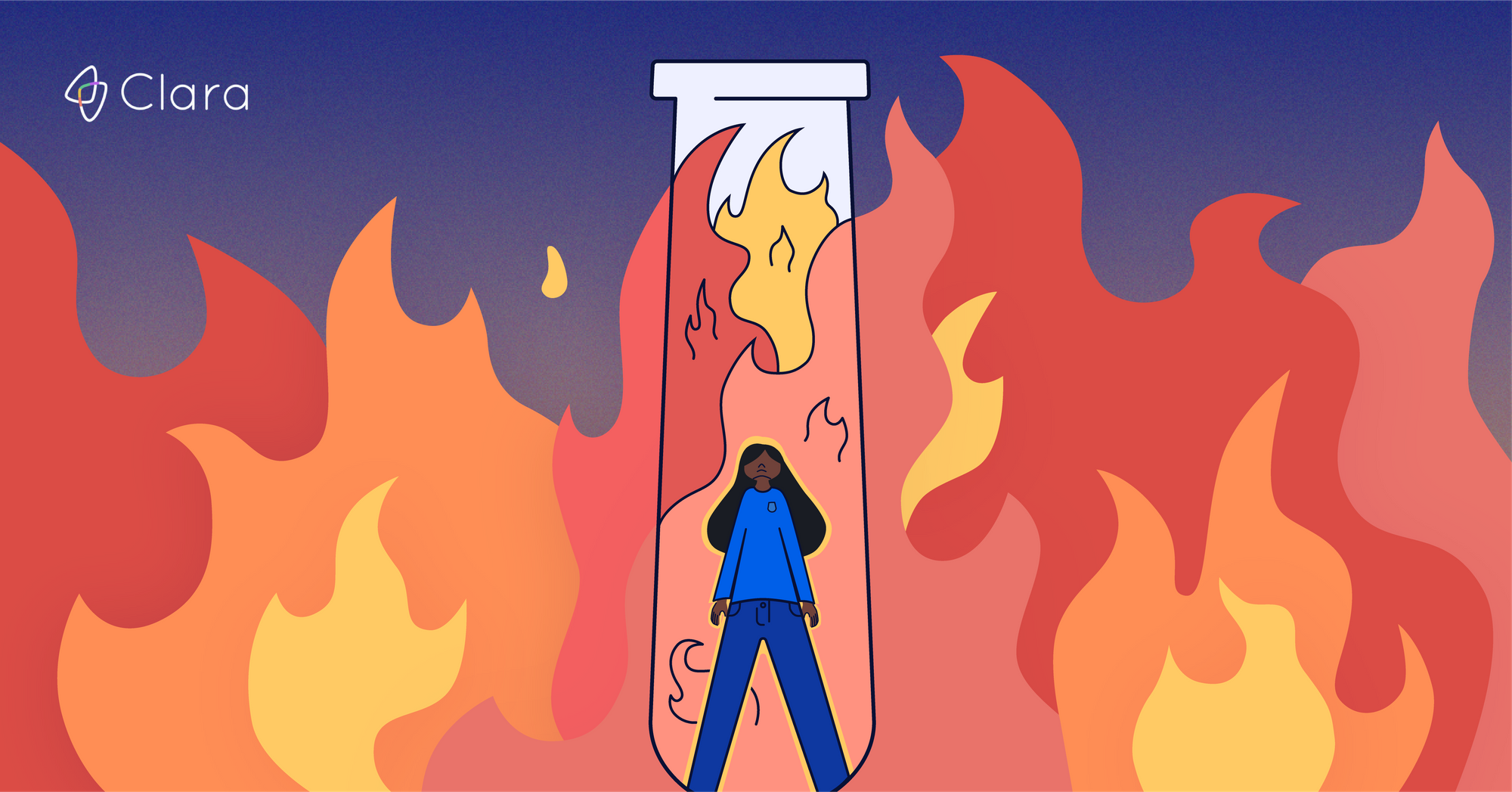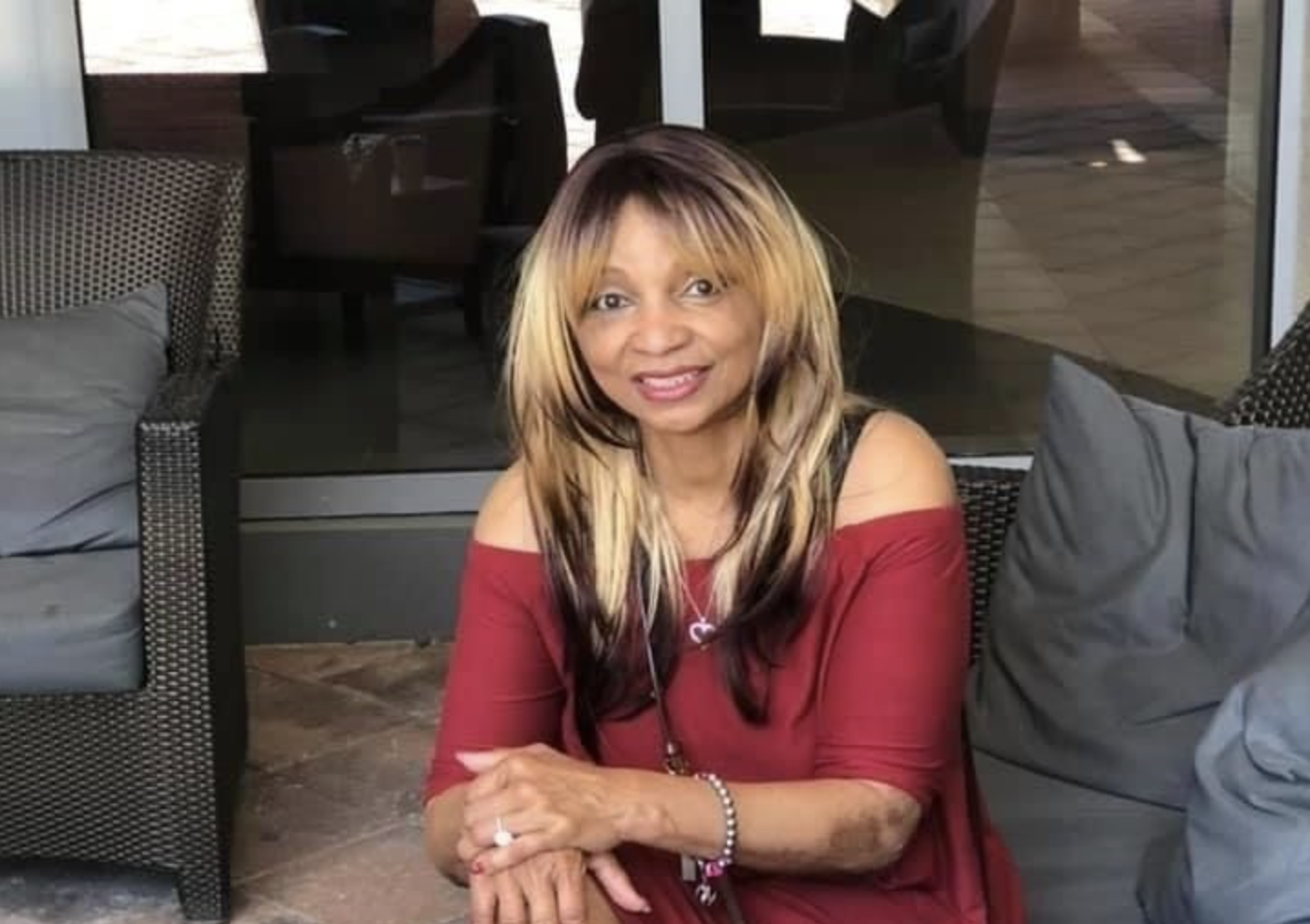Our latest Patients Have Power episode is called "If you had three wishes, what would they be?" (You can subscribe to the podcast at Apple Podcasts, or listen to it with the media player above).
In this episode, we speak with Ashley Boynes-Shuck - a writer, patient advocate, and a powerhouse voice for those who live with chronic conditions. Among other things, she's a published author who just finished her fourth book, an animal lover and advocate, a lover of fashion who won a fashion award from the Pittsburgh Fashion Hall of Fame, an avid birdwatcher... and somehow she found time to chat with us about her journey, her ongoing projects, and her life as one-half of a power couple.
Below is a transcript of the episode for your reading pleasure!
Lilly Stairs: Hello everyone, and welcome to the Patients Have Power Podcast. I just could not be more excited today, because we have Miss Ashley Boynes-Shuck with us, better known as Arthritis Ashley online. Ashley, thank you so much for joining us!
Ashley Boynes-Shuck: Thanks for having me, I'm excited to be on with you.
Lilly Stairs: Well, Ashley and I - and I think I've told you this before - when I was first diagnosed with psoriatic arthritis, Ashley was one of the first advocates that I came across online. And I read all of her blog posts, and it was amazing to see another young woman living with arthritis.
It was a huge support to me, so thank you just from the bottom of my heart for everything you've done for advocates like me, because you're making a huge difference.
Ashley Boynes-Shuck: Aw, thank you. I appreciate your support.
Lilly Stairs: Of course. So today I think we're going to cover a lot of different topics, but I want to first start by just asking you to give your elevator pitch if you will, of your patient journey, and then how you got to this point of being an advocate.
Ashley Boynes-Shuck: Sure. Well, I was diagnosed with the juvenile form of rheumatoid arthrtis when I was in middle school. And being diagnosed with such a debilitating condition at a young age forced me to really find a new perspective. I had to quit playing sports, and that pushed me to pursue other passions.
So I kind of turned towards writing, and kind of my love for fashion and pop culture - things like that. And that's really translated it into my adult life as well. I have always felt since a young age called to help people. To teach, to inspire, but also to share my story and share my journey. Having the writing platform, and being so active on social media, has allowed me to kind of transform from just being a patient, to being a patient and a patient advocate, among other things.
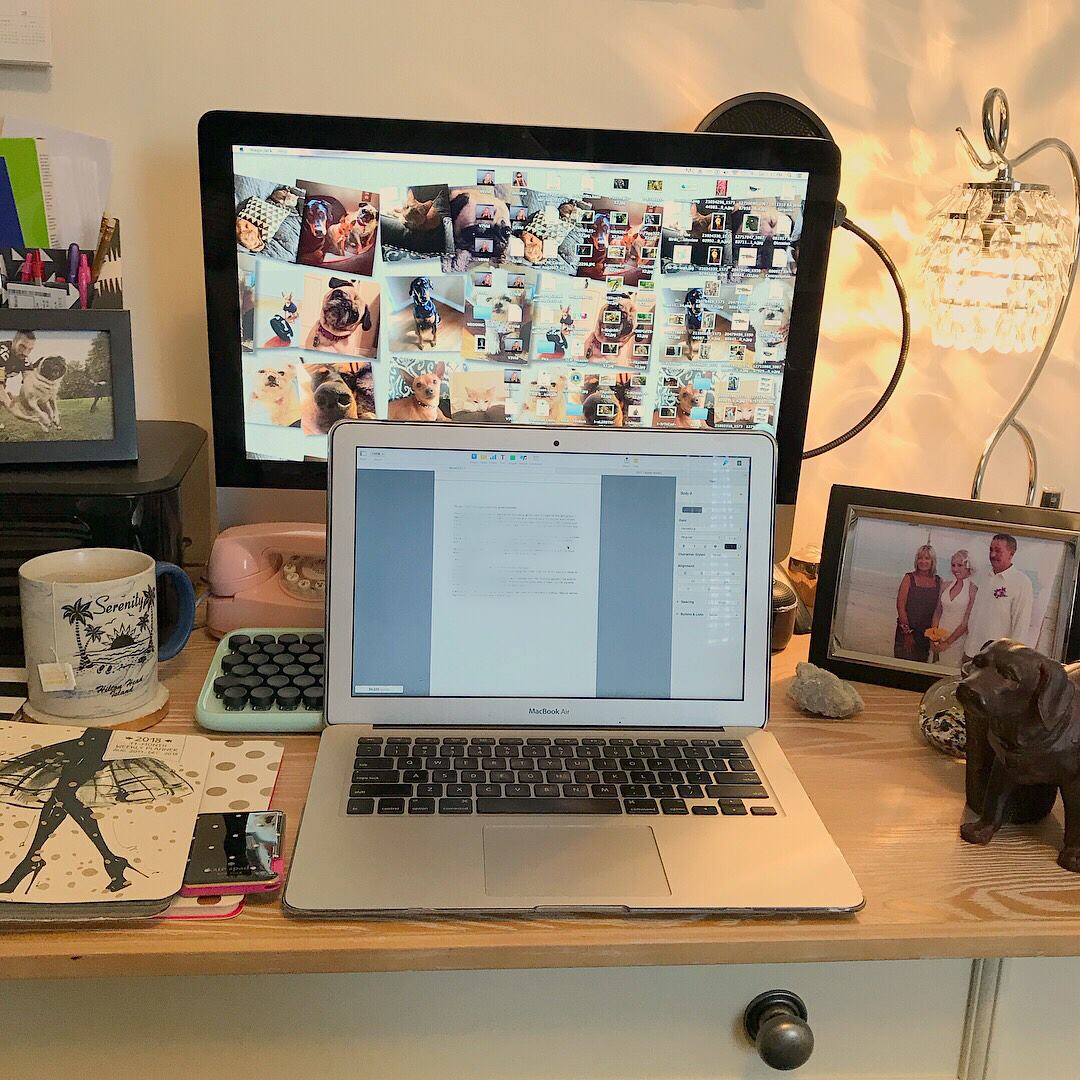
Ashley Boynes-Shuck: So I have been diagnosed with several other chronic conditions throughout my young adult and adult life. And I've used all of that, including the RA, as kind of fuel for my journey. That's kind of a part of who I am - but I don't let it define me, and it's not all of who I am.
And so I hope that that comes through in my advocacy work and in my writing.
Lilly Stairs: Yeah, I think absolutely does.
Lilly Stairs: I actually would like to take a moment to ask you a little bit about some of the other initiatives that you work on. Because I agree, I think it's so important that we talk about these other pieces of us. I think a lot of us who are online as advocates, we all know each other as patients first, and patient advocates.
But there's so much more to us as people, and so I'd love to hear just a little bit more about some of the other projects that you're working on.
Ashley Boynes-Shuck: Sure. Well, as a patient, I do the advocacy work - I've gone to D.C. and spoken to members of Congress on Capitol Hill. I've worked with the Arthritis Foundation and Creaky Joints and We Go Health, you guys, and just so many different health-related entities.
But aside from that, I've published three books. I just finished my fourth book.
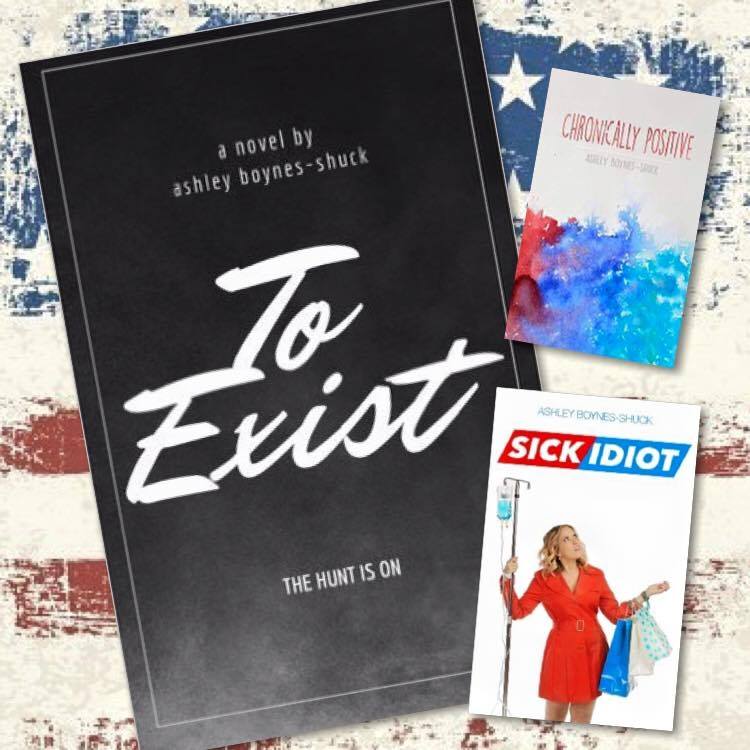
Lilly Stairs: Ooh, congratulations!
Ashley Boynes-Shuck: Thank you. I'm so excited. And so two of my books are fiction, and two of them are health-related. So again, it's kind of that balance of: I got the two health memoirs, but then I got my fiction work as well.
I'm really involved in kind of animal advocacy. I was on the board of directors for a pet rescue and animal welfare nonprofit. I have a couple rescue pets myself. I have, actually, three dogs and two cats. So, quite a handful there.
Lilly Stairs: Yeah, and I'll pause to say Ashley told me that she's doing this podcast from her car because she knows when she goes inside, it'll be rather noisy.
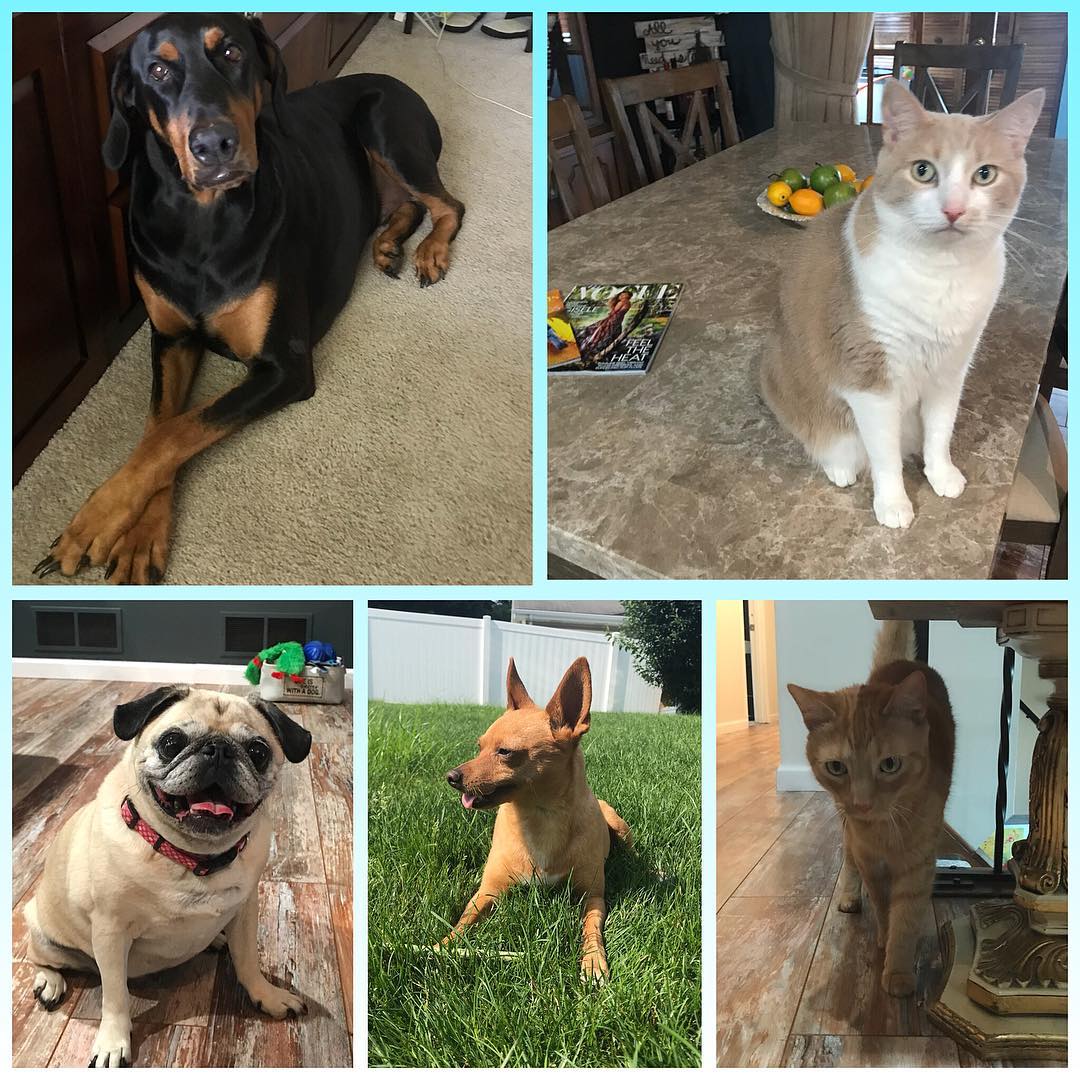
Ashley Boynes-Shuck: Yep. That's so true, that's so true.
Hearkening back to having these other interests and passions outside of just being a patient and a patient advocate, I've always loved fashion and pop culture since a young age. I have even dabbled in fashion design in the past. I won an award here in Pittsburgh in the Fashion Hall of Fame. I used to work on air at a Top 40 radio station, so I have that piece. I'm always going to concerts, I've interviewed a lot of celebrities. Love traveling.
I have some nerdy hobbies too, like birdwatching and astronomy. I love to go boating, I love to be outdoors. And there are a lot of things that my RA and other health conditions have forced me to give up, and that's kind of sad.
I can't play sports anymore, and there's a lot of exercise-related things and fitness-related things I can't do anymore. Which is challenging, because my husband's a super athlete, and he was on American Ninja Warrior and all that kind of stuff.
Lilly Stairs: Oh my gosh. You two are a power couple.
Ashley Boynes-Shuck: Aw, thank you, thank you. But you know, it doesn't always feel like it on the days that I can barely get out of bed and he has to help me with things that most people in their 30s aren't dealing with.
So we're always fighting to find that balance between me:
- Being a patient,
- Being more than a patient,
- Being his wife, and
- Being someone that's passionate about concerts, and travel, and fashion - who loves volunteering and animals and writing, and all of that stuff.

Ashley Boynes-Shuck: How do I balance that, and balance being a friend, and having a social life, and all of that with being chronically ill?
And to me, that's something that I talk about a lot in my writing and advocacy work - is finding that balance, and realizing that you are more than a patient, even though that's a huge part of your identity. It's not all of who you are.
And so every single day, through my work, through my interests, through my hobbies, through my social life, I am trying to maintain that balance and not let my illnesses overtake me.
Lilly Stairs: I love that, I love that. And I think you're doing a great job with it. I'm impressed by the list of different things that you're working on.
Lilly Stairs: I'd like to dig in a little on the writing piece in all of this, because as we discussed previously, you've really said that writing has been an amazing coping mechanism for you. Can you tell me a little more about that?
Ashley Boynes-Shuck: Yeah, it has. You know, we recently moved in December into my late grandparents' home and found just boxes and boxes of things that they had kept over the years.
And I was really struck by the fact that I started writing stories pretty much in first or second grade. My mom had given me a folder, too, of old stories that I wrote in elementary school. I mean, I started writing chapter books as a kid. And I even found journals from around the time I was first diagnosed with juvenile rheumatoid arthritis.
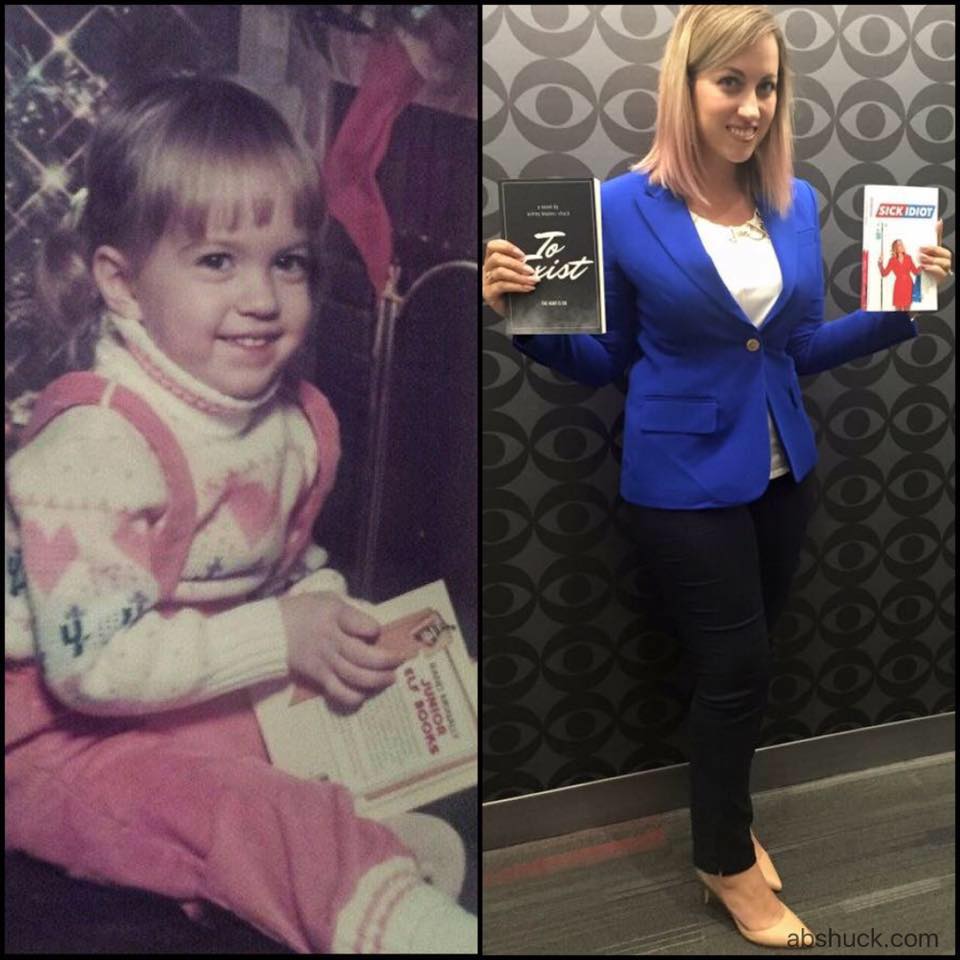
Ashley Boynes-Shuck: And it was kind of sad to read them - but I also recognized, as an adult, reading them, that it was very cathartic for me to be able to write and talk about all the normal things that girls in middle school and high school deal with. But also, this extra added component that is definitely an emotional burden on top of being physically disabling and destructive.
I mean, I've used writing as a creative outlet since childhood - really as a way to kind of vent, and as a means of catharsis since probably middle school age. And so it's been a blessing to be able to use that as part of my advocacy journey and part of my patient journey, but also part of my career and my professional life.
Ashley Boynes-Shuck: So, two of my books are, as I mentioned, they're non-fiction. They're memoirs about my medical journey.
One of them is funny, and it's a collection of little short stories and anecdotes about my life with illness. And it's called Sick Idiot, which the title's explained in the intro, don't worry.
And the other one is a collection of kind of my most popular Arthritis Ashley blog posts, and also some short essays and things like that. That one's more the typical, kind of inspirational and self-help kind of thing. It also discusses my life with illness, but not necessarily from a humorous perspective.
Ashley Boynes-Shuck: So the books are similar, I don't call one a sequel to the other or anything. I call them kind of companion books. Sick Idiot was the first one I had published, and then Chronically Positive is the companion book to that. It was so rewarding and cathartic writing those, and even just maintaining my Arthritis Ashley blog.
There's something very emotional about either putting a pen to paper or just sitting down at your keyboard and writing or dictating a blog entry.

Ashley Boynes-Shuck: To me, words have so much power, and are such a meaningful and mindful way to express what you're feeling and what you're going through. And when people are on the receiving end of those words who get it and who get something from it and who can relate and say "that's me too, I'm going through that too", then that, to me, is extra powerful and empowering.
And it makes me feel like I have a purpose, and it makes me feel really good about sharing my writing. And so that type of work in the health space has had a little bit of a different impact on my life because of that cathartic and kind of empowering component.
Ashley Boynes-Shuck: Now, the fiction work and some of the other work I do, freelancing for magazines and websites, I love that just as much, believe it or not. But it's a little bit different. It comes from a different place. It's more of a creative expression. And I'm very, very proud of it.
And I think equally proud of my fiction novel, which is called "To Exist". It's kind of a post-apocalyptic book with a female lead character who's the last female left in America of childbearing age. So she's kind of being hunted by all the men, and it kind of has its dark parts, but it's also kind of funny. And I always describe the heroine as Carrie Bradshaw from Sex & The City meets Katniss Everdeen from The Hunger Games.
Lilly Stairs: Ooh, this sounds amazing. I have to read it. Wait, is this the one you just wrote, or is this one already published?
Ashley Boynes-Shuck: No, this was already published. It was actually the first book I completed, and the first book I published, even before my health memoirs. It's called To Exist.
The lead character's name is Shelby - she's in her 20s. She is very neurotic, very much in her head, very much a girly girl. Not your typical strong, fierce, post-apocalyptic lead. But it kind of works, given just the way it's told and the landscape and everything like that. And I think that in all of my books, fiction and nonfiction, there's a piece of me reflected in the writing.
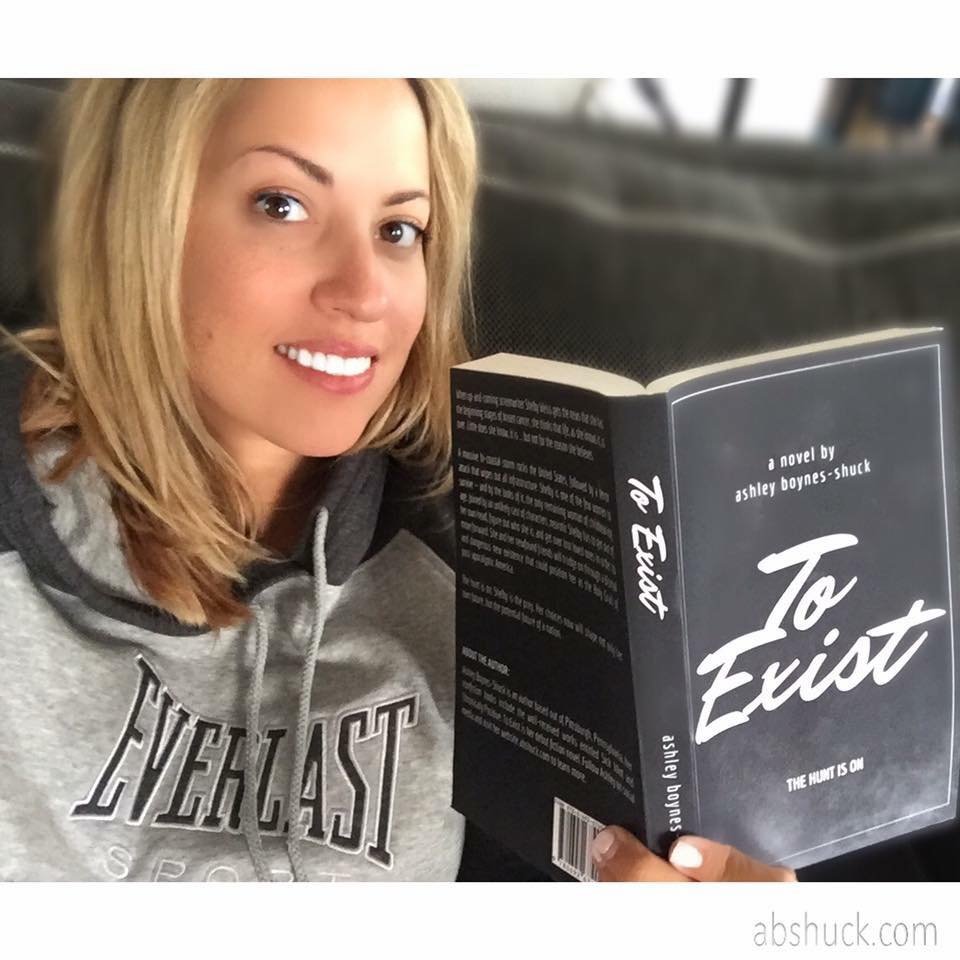
Ashley Boynes-Shuck: So Shelby can be - you know, she has her flaws. She's a flawed character, she's not perfect. But there are things about her that I'm like, in hindsight, I'm looking at that and seeing, "oh, there's a piece of me in there."
So I try to kind of leave a piece of myself or a piece of my personality or a piece of my journey in all of my writing. And I think that even though the fourth book I wrote that's not published yet, it's a very complex book and a very difficult topic to write about, but even in that scenario in that book, I see parts of the lead character that can relate back to myself.
And I think that as an author, and whether you're writing fiction or nonfiction, it's important to have a strong voice. And that speaks to advocacy work, too. I think that telling your own story or leaving a personal mark on things is kind of the best way to make sure your voice is heard and to get your point across, whether that point is some crazy fiction story that you're telling or your crazy real life that you're sharing with people.
Lilly Stairs: Wow. So powerful, and I have so many questions for you.
Lilly Stairs: I think the first thing I wanna ask you is, I'm so intrigued by this moment that you recently had where you were able to go back to these diary entries that you had written.
Is there any one moment in particular that stands out to you, or story from your diary that you read, that really resonated or made you think or something that you'd like to share with our audience?
Ashley Boynes-Shuck: Sure. It's funny that you ask that, because I actually have a perfect entry - a perfect answer to that. One entry that stood out was actually really upsetting to read.
I was probably in, judging by the date, it was either sixth or seventh grade. And we had an English teacher who made us teach a journal and would give us different writing topics or writing prompts each day or week. And I was reading this one - I think the prompt must've been
"If you had three wishes, what would they be?"

Ashley Boynes-Shuck: And my first two wishes were - I can't even remember, they were so inconsequential, and so typical of a tween or teenage girl. They didn't resonate or anything.
But I remember that the last piece of it broke my heart reading it, because I had written that - and I don't necessarily remember feeling this way, but I mean, obviously I did if I was writing it. I had written that I wished I wasn't so ugly and I wished that I wasn't in pain.
And for me to read that as an adult and just looking back, I'm like, I can't believe that I was, did I really think that I was that ugly? And was I hurting that much that I was already at that age wishing I wasn't in pain? I don't remember writing that.
But it broke my heart to know that I felt that way at that age at such a vulnerable, fragile time of your life. And that my self-esteem was that low. Something that I talked about in, I believe it was Sick Idiot - it may have been Chronically Positive, but I think it was Sick Idiot, was how there have been times in my life that maybe I didn't realize what I deserved in life because I felt broken and I felt damaged and I felt kind of like damaged goods and I came with all this baggage.
And it was Sick Idiot, actually, because the chapter was talking about when I met my husband. I had dated a bunch of people that were bad for me, and I think that a part of me had always felt like, because of my sicknesses, that I was kind of damaged goods.

Ashley Boynes-Shuck: And then there was another chapter in that book where I was trying on my wedding dresses. And even though I wish I was the size now that I was when I was trying on those wedding dresses, I remember looking in the mirror - I wrote about this in Sick Idiot - and just feeling gross, and feeling bad about myself, and almost having like a body dysmorphia type situation because being sick made me feel like I looked bad.
It made me feel crappy because I felt crappy on the inside. My body felt sick and tired and in pain, and I felt older than I was. And I just felt gross. Illness can make you feel that way sometimes, unfortunately. And to realize that trying on my wedding dresses was slightly tarnished. You know, such a special, momentous occasion tarnished, because I had this negative mindset about myself, that was upsetting.
When I was writing Sick Idiot, that was one of those moments that was cathartic, but also hard to write. So then, when I found my journal and seeing myself in sixth in seventh grade saying "I wish I wasn't ugly and I wish I wasn't in pain", that was sad. 'Cause I must have had those feelings for a very long time, and I don't think anyone knew me back then or now ever would have thought that.
But I do remember feeling kind of isolated and different because of my health problems, and it definitely led to some insecurities, I think.
Lilly Stairs: Wow.
Ashley Boynes-Shuck: So that was a hard, hard journal entry to read.
Lilly Stairs: And thank you for sharing such a personal moment in time. And I imagine this is something that is really resonating with a lot of the patients who are listening in and advocates who are listening in, because so many of us are living with chronic illness.
Lilly Stairs: What have you done, or who has helped you, be able to see yourself in a different light? And what are your recommendations for people who are feeling that way right now?
They're feeling like they're damaged goods - what do you say to them?
Ashley Boynes-Shuck: Well, I need to be honest with you. For me, my body image and that kind of stuff, is always a struggle. I just was upset two days ago about needing to lose weight and not being able to exercise the way I used to be able to before my knee replacement. And so it's still something that I deal with, and it's an ongoing journey, just like all aspects of living with illness.
Now, that said, I am very blessed and very lucky. And I always talk about how grateful I am, because other than the health problems, my life is amazing. I have wonderful people in my life, and a great support system. And I do recognize that that's a privilege and not everyone has it, but my parents always encouraged me to do my best, and always told me I was beautiful and always told me, going out, they told me I looked nice.
And they always instilled that confidence in me, and so did my grandparents, for sure. Especially my grandfather - he passed away in 2015. He was one of my biggest fans as well. Would always tell me how beautiful I was, and how smart, and he couldn't believe everything that I achieved. My grandma that passed away this past September - she had RA too, so just looking at how she always coped with it, she was always so strong. And she always would look nice. When she went out somewhere, even if it was just to the store, she would always have her lipstick on and she would always dress very nicely, and I think that even if she was really sick or really in pain or really suffering or hurting, she never let it show.

Ashley Boynes-Shuck: And I think I kind of would see that and kind of absorb it, that I wanted to put forth my best self and try to present myself well.
And I don't mean that necessarily in a vain or shallow way, but I cared about how I looked. I wanted to look nice, and I didn't want to feel like I had to fit in a certain box because I was sick. There's some people that feel like you have to look or act a certain way if you're ill, and I don't buy into that at all. I'm gonna wear whatever I want, and I'm gonna wear makeup if I feel like it, or not if I don't feel like it.
And I'm not gonna settle for less because of illness.
It took me a while to get to that place and realize that. Because there were times in the past where I would have fellow patients in the online community say rude things to me, kind of about
"You shouldn't be wearing those shoes."
It was back when I could still wear heels, I can't anymore. But people would say things like that.
It was mind-blowing to me that part of the thing that a lot of us advocates kind of rally against is this idea that you have to look sick. And there's this whole thing about invisible illness being invisible. And I don't know, I feel like fellow patients always bought into that.
Ashley Boynes-Shuck: And so there were times where I was being attacked on social media for looking or acting a certain way, like I wasn't sick enough. It took a while for me to get over those new insecurities.
And my husband was a big part of that - he would say to me, you know, "Why do you care what strangers online think? You shouldn't. You're beautiful the way you are. If you want to exercise or eat differently or lose weight to be healthier, that's one thing, but you look great. You don't have to worry about how you look."
And he always is very encouraging of all of my dreams, and so that's been a huge confidence booster. Very encouraging about my books. Very encouraging if I say I want to try an exercise or anything like that.
And so, between him, my parents, and all three of my grandparents, I've had a lot of love, and I've had a lot of support. Like I said, I still get insecure. But I think that you need to find people like that in your life that can show you who you are, you know? Hold a mirror up to you and say, this is what we see.
This is the beauty we see inside and out, and you have so much to offer the world. And we all kind of need those cheerleaders.

Ashley Boynes-Shuck: And I'll say to anyone listening that if you don't have those cheerleaders, come follow me on my Arthritis Ashley page and I will be your cheerleader, because that's what we do in that community. It's no negativity, no bullying, no trolling.
We lift each other up, we encourage, we motivate, we inspire, we compliment. Because the world has so much negativity and sadness and heartache. That's not what that community's for. I aim to build a community where people are giving and receiving love and inspiration and positivity, because we all need that, especially if we're feeling a bit down.
Lilly Stairs: What a beautiful answer. And I'm so glad that you have these people in your life, and I hope that anyone who's listening, any of our patients out there and advocates, that you have those people and that you lean on those people when you need to.
And if you don't have them, like Ashley said, there are so many incredible communities out there to be a part of. Pick and choose wisely, because some of them can be not as great of an experience to be a part of in the sense that they can be, there can be some attacking. But don't let that get you down.
Make sure that you're a part of those communities that are supportive. Clara Health's Breakthrough Crew, is another great avenue and place where you can be welcomed. We come across all different therapeutic areas, but I've been really amazed by the group of people that we have in it and how supportive everyone is of each other.
Lilly Stairs: Ashley, one more question for you we like to ask everybody this on our podcast.
What does Patients Have Power mean to you?
Ashley Boynes-Shuck: I think that Patients Have Power means that you have it within yourself, much like Dorothy in the Wizard of Oz. If you remember at the end, she had it inside of her all along.
I feel like we as patients forget that we have autonomy and we have choices and we have power, and that we can be stewards of our own health. We can make the best choices for ourselves given our situation.

Ashley Boynes-Shuck: And that doesn't mean that everything is rosy and perfect all the time or anything like that. But it means that you're dealing with and coping with the situation you've been dealt as best you can at any given time on any given day.
To me, that's powerful, and that's positivity. Not rainbows and butterflies and sunshine all the time. It's really kind of embracing your journey and just doing the best you can with what you have. That's power, and being informed is power, and realizing that you're not alone in this is powerful too.
And so that's what patients have power means to me.
Lilly Stairs: I love it so much.
Lilly Stairs: Thank you for sharing that answer and thank you for joining us today. Definitely somebody to follow who is a bright and shining inspiration to us all.
So thanks for being with us today, Ashley.
Ashley Boynes-Shuck: That's so kind. Thank you so much for having me. I really appreciate the chance to talk and I love the work that you are doing, so thank you.
Lilly Stairs: Thank you. Okay, everybody. Well, we will see you next week for our next installment of the Patients Have Power Podcast!
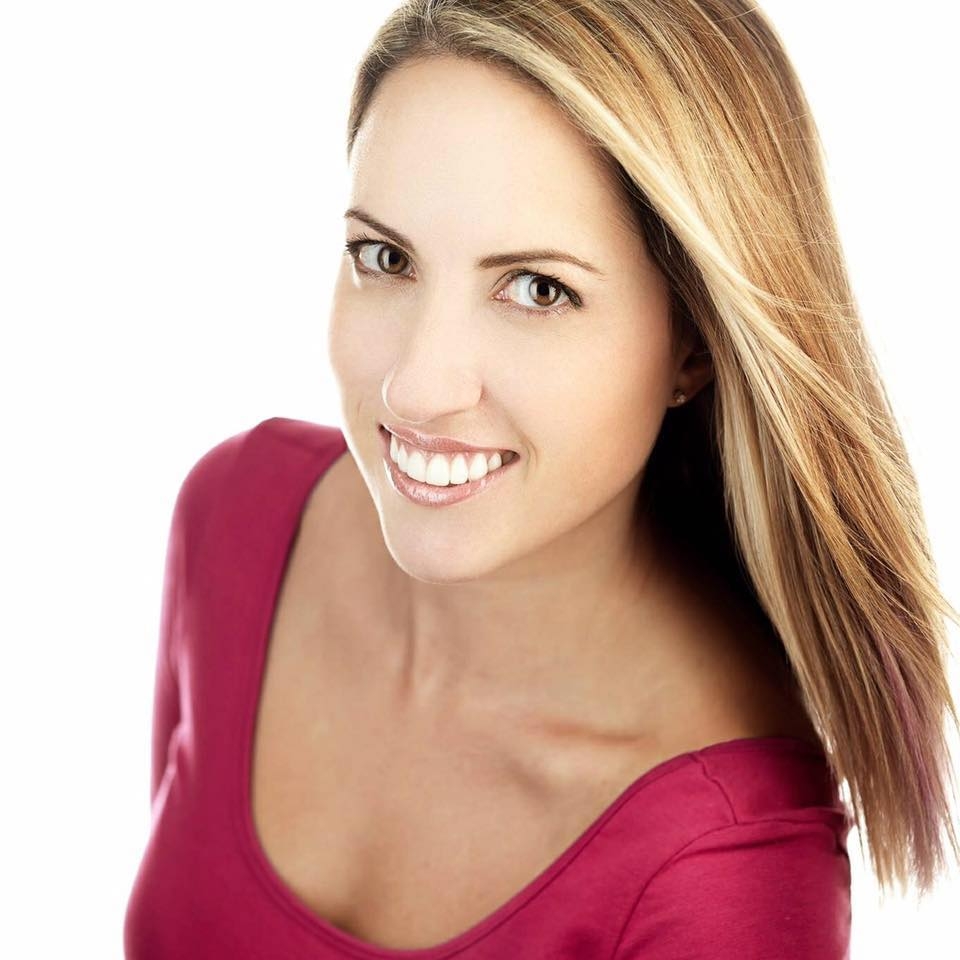
Follow Ashley's journey and connect with her on Facebook @AshleyBoynesShuck, Instagram @ambshuck, her website ArthritisAshley.com, and check out her books here!

